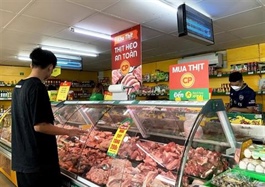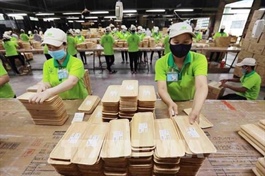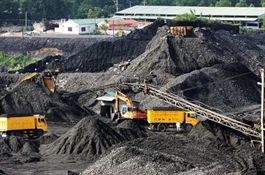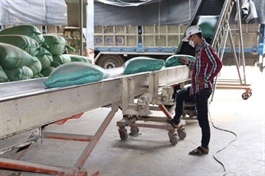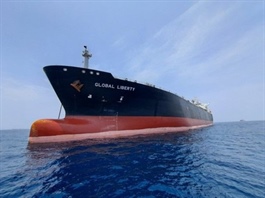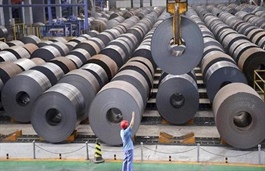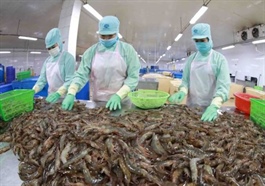Market tools suggested as best method to decide petrol prices
Market tools suggested as best method to decide petrol prices
National Assembly Delegate Hoàng Văn Cường, member of the Finance - Budget Committee of the National Assembly, proposed that petrol and oil prices should be set by companies, but the State still needs to have tools to regulate the market.
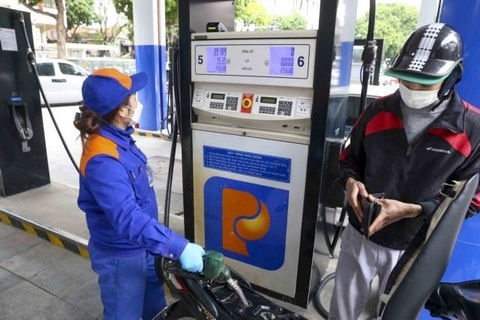
A petrol station in Hà Nội. If the trading floor is established, it will create business transparency on the petrol market. — VNA/VNS Photo |
At a discussion on a transparent and effective petrol market held by the Government information site on July 30, Cường said Việt Nam had three tools for stabilising petrol prices, State management through base prices, tax tools and the petrol price stabilisation fund.
Thus, Việt Nam used quite comprehensive tools like many countries. In which, the State played a big role in regulating petrol prices.
However, the domestic petrol prices still had to follow the unusual fluctuations of world market prices, he said. So, those tools had not ensured profits as the enterprises calculated.
The petrol prices stabilised by tax tools or the petrol price stabilisation fund meant use of the budget and people's resources to stabilise prices not market tools and this could lead to uncompetitive prices in the market.
"If we want to have a competitive market, the buying and selling prices should be decided by the market, and the enterprises should use modern tools to stabilise petrol prices," Cường said.
"In the world, large companies often use derivative tools to stabilise the petrol prices. So, the State needs to create legal bases and conditions for the enterprises to use the derivative tools such as petrol price insurance. Besides, there must be enough national reserve resources."
During the discussion, chairman of the Vietnam Petroleum Association Bùi Ngọc Bảo said that State management for the petrol market was to ensure petrol and oil supply for the economy. The second was to ensure management of the general price level and when there are strong fluctuations, prices could be regulated on the market through taxes and price stabilisation. If there was a competitive market, consumers would always choose a favourable price.
In addition, Việt Nam could use derivatives such as petrol price insurance. However, in Việt Nam, these regulations relating to the derivatives were still lacking in consistency. Besides that, there were many other inappropriate regulations. Therefore, it was necessary to evaluate and review the decrees to develop a new decree to solve this problem, Bảo said.
Economic expert Ngô Trí Long proposed building a petroleum trading floor. If the trading floor is established, it will create business transparency and investment opportunities, manage risks in the petrol market, promote competition, reduce costs and benefit consumers, according to Long.
At present, the State's petroleum market share accounts for 88 per cent. When there is the trading floor, the market share will be redistributed and the private sector will have more shares, creating higher competition.
However, this expert said the challenge was large initial investment cost. Besides, it would require strict management and supervision. It would also face risks in the market and price fluctuations due to dependence on the world market.
According to Phạm Văn Bình, deputy director of the Price Management Department (Ministry of Finance), now the oil and gas business and oil price management are being implemented according to Decree 83 (2014), Decree 95 (2021) and Decree 80 (2023).
There are still some contents in the management and operation for the petrol market that need to be studied for further improvement.
However, in general, the management of oil and gas business activities, especially price management, has been implemented strictly in accordance with these decrees and current legal documents as well as according to fluctuations on the world prices.
The price level from the beginning of 2024 until now is relatively stable, without major fluctuations, according to Bình.
The Ministry of Industry and Trade is assigned by the Government to develop a new decree, to replace the existing decrees, to create suitable changes in regulations on gasoline business activities.








